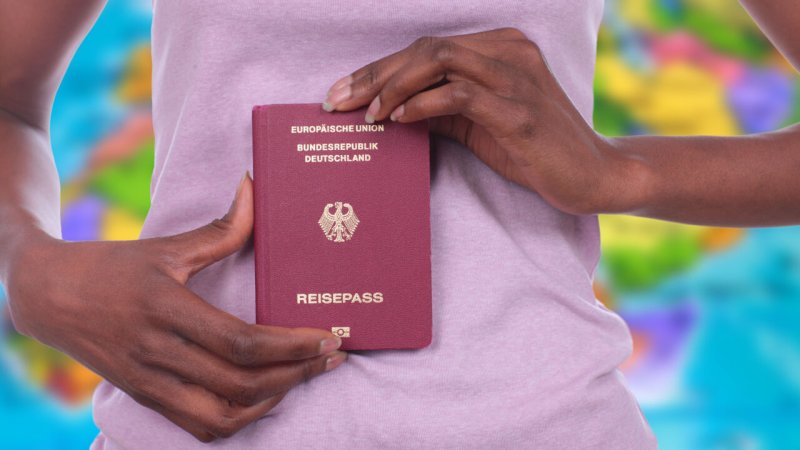
The EU permanent residence permit is a specific form of permanent residence permit. With an EU permanent residence permit, you have the option of obtaining a residence permit in other EU countries; that is, under certain conditions, you can live and work in another EU country. The EU permanent residence permit has unlimited validity. You can also apply for it in addition to a permanent residence permit. With a permanent residence permit, you may stay in another EU country for up to 90 days but are not allowed to live or work there. You can find out more about permanent residence permit in our chapter "permanent residence permit".
You need to meet the following requirements to obtain a permanent residence permit:
- You may not receive benefits from the jobcentre or social welfare office currently or in the future; which means you have to be able to cover all your expenses with your wages.
- You have to speak German at level B1 and provide relevant evidence.
- You must have enough living space for yourself and your family. The standard size varies from state to state- ask the staff responsible for you at the Immigration Office or a counselling centre for more information.
- You must have completed the orientation course. The orientation course is part of the integration course, where participants learn about the society and history of Germany.
- You must not have committed any major crime.
- You must have had your residence permit for at least five years.
- If you are entitled to asylum, recognised refugee or beneficiary of subsidiary protection, the duration of your asylum procedure is also included.
Important: If you have been issued a residence permit as a result of being entitled to a national ban on deportation, you cannot apply for an EU permanent residence permit.
You can apply for an EU permanent residence permit at the appropriate Immigration Office. To do so, you need to take the same steps described in the section "Where can I apply for a permanent residence permit?". You then can go ahead and apply for a residence permit from the EU country of your choice. You can find out how in the next sections.
When you have an EU permanent residence permit and would like to live in another EU country, you need to apply at the Immigration Office of the country in question. For other EU state to issue you a residence permit, you need to meet the following conditions:
- You need to have an EU permanent residence permit
- You may not depend on any financial support from the state for your living.
- In principle, you need to introduce a contract (or alike) signed by your expected employer or an enrolment certificate (or alike) from the university you are planning to attend in the relevant country
- You need to have health insurance
When the Immigration Office in the other country accepts your application, in principle, you also need to apply at the relevant Employment Agency for a work permit which allows you to work there.
Please keep in mind: Denmark and Ireland have not implemented the corresponding EU Directive. In these countries, you cannot apply for a residence permit based on your EU permanent residence permit.
Yes. Under the following conditions, you may lose your EU permanent residence permit:
- Your EU permanent residence permit may be revoked if you have obtained it as a result of providing false information to the authorities.
- If you are considered to be a threat to public safety and order, you may be deported. In this case, you will also lose your EU permanent residence permit permit.
- If you reside outside the European Union (or in Denmark or Ireland) for more than 12 months, in principle, you will lose your EU permanent residence permit.
- If you do not reside in Germany for more than 6 years, in principle, you will lose your EU permanent residence permit.
- If you obtain a long-term residence permit from another EU country, you will lose your EU permanent residence permit.
- If you have been granted an EU permanent residence permit-based on your recognition as a refugee or your entitlement to asylum, subsidiary protection or national ban on deportation- travelling to your home country may lead to revocation of your protection status and consequently, your residence permit. When your recognition is invalidated, the immigration office has two options: 1. They may also revoke your EU permanent residence permit. 2. They may uphold your EU permanent residence permit. The latter usually happens when you have been in Germany/European Union for a long time, are linguistically well-integrated and have a job with no need for state benefits (from the Jobcentre or Social Welfare Office). The Immigration Office is the sole authority who decides between the two options mentioned above (§52 I Residence Act).
The EU permanent residence permitis not the only way to obtain rights of residence in other EU countries. Qualified workers can often obtain other types of residence permits. Seek advice from counselling services and authorities in the relevant country. You can also find more information in our chapter “Immigration to Germany”.
The Adult Migration counselling Service (MBE) offers support to adults (+27) on the topic of vocational training in many different languages.
The counselling centres of the Youth Migration Service (JMD) offer support and advice to refugees and migrants under the age of 27 on various topics in many different languages.
In the BAMF online test centre, you can prepare yourself for the naturalisation test.



